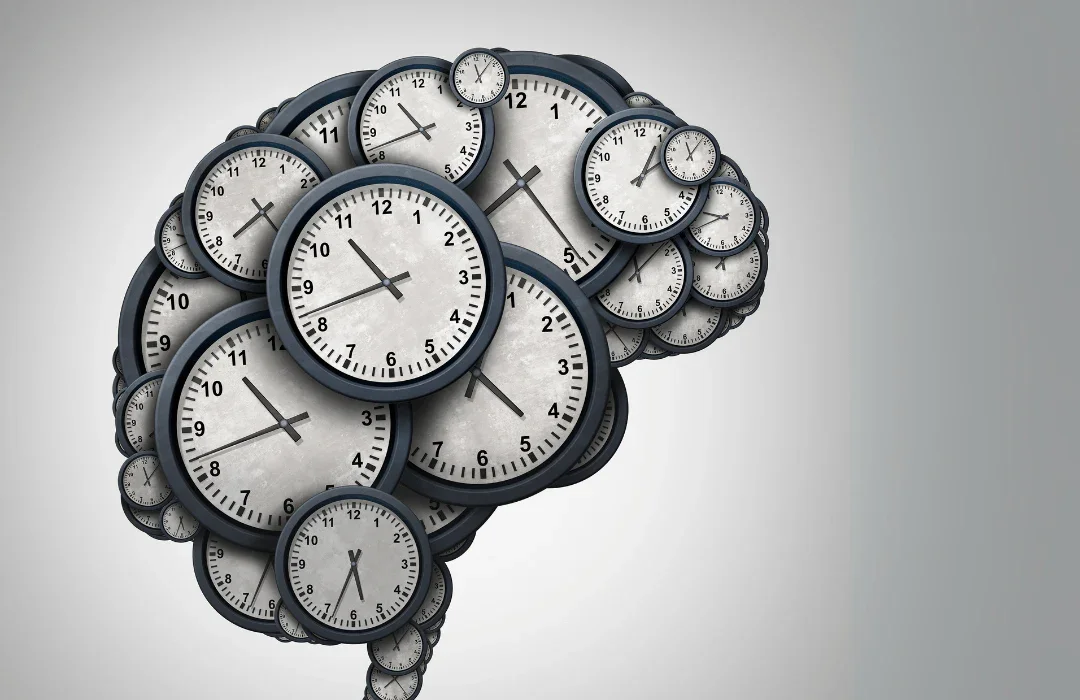Your Brain’s Night Shift: How Deep Sleep Makes Memories Stick 🧠💤
Illustration depicting how the brain organizes and filters memories during sleep.
Picture this: you drift off, your muscles heavy, your breath slow and steady. The world outside fades, but inside your skull, it’s showtime. While you sleep, your brain’s night crew punches in—not to answer emails or draft presentations—but to file your memories.
During the deepest stage of non-REM sleep, a silent tide of slow-wave activity rolls across the brain. It’s a nightly filing frenzy, sorting, labeling, and storing everything worth keeping from the day. If sleep is the body’s repair shop, deep sleep is the archive.
🧠 What Deep Sleep Really Does
In the early part of the night, your brain sinks into slow-wave sleep, the deepest, most restorative non-REM stage. If you could see your brainwaves then, they’d look like a crowd at a stadium doing “the wave” in perfect sync—slow, powerful, unified.
Here’s the magic:
🧠 Your hippocampus, the short-term memory inbox, offloads the day’s “files.”
📂 Those files travel to the neocortex, the long-term storage vault.
🪄 Connections between ideas strengthen, new facts consolidate, and motor skills lock in.
Miss that deep sleep window? The files never make it to the vault. They get lost in the noise of tomorrow—like a desktop full of unsaved drafts.
📡 The Fragile Filing Window
Conceptual illustration of time perception and cognitive processing.
This nightly memory work happens early in the night—mostly during the first 3–4 hours after you fall asleep. That’s why:
Staying up late,
Shortchanging your total sleep, or
Waking repeatedly
can seriously shrink the brain’s memory-processing window. You can’t just “catch up” on this part in the morning; the rhythm is built into the night.
🔕 Why Quiet Nights Protect Sharp Minds
The biggest saboteur of slow-wave sleep isn’t just stress—it’s noise. Even sounds you don’t consciously wake up for can fragment deep sleep, snapping those elegant brainwaves out of sync. When the rhythm breaks, the memory filing system falters.
Humans have always known this instinctively. That’s why ancient bedrooms had:
Thick wool curtains,
Heavy shutters,
Quiet hours enforced by curfews.
Today, pink and white noise serve the same role—not silencing the world, but smoothing it out into something steady, predictable, ignorable.
Modern research confirms it: low-frequency pink noise can stabilize deep sleep and enhance memory consolidation. Think of it as giving your hippocampus a calm, quiet office to work in.
🛠️ How to Protect Your Memory’s Night Shift
If your brain’s a librarian working the night shift, the least you can do is stop barging in with flashing notifications and banging doors.
Here’s how to help the archivist do its job:
🕒 Protect the early window. Go to bed at a consistent time so your brain gets its slow-wave stretch.
🔇 Soften the soundscape. Use pink noise, a fan, or a sound machine to blur unpredictable sounds.
🌡️ Cool, dark, calm. Keep the room slightly cooler and the light low to cue your nervous system.
📵 Mute the pings. Notifications and sudden dings can yank you out of deep sleep without you realizing it.
🌙 A Lesson Hidden in History
Our ancestors didn’t know about hippocampal replay or synaptic consolidation. But they knew that quiet, darkness, and ritual made for better nights.
Egyptian dream temples were hushed sanctuaries.
Medieval homes used wool and shutters to mute the streets.
19th-century sleepers wore earplugs.
Today, we use sleep apps and smart sound.
Different tools, same instinct: protect the night so the brain can work.
You don’t need to force memories to stick.
You just need to give your brain the space to do what it already knows.
👉 Your turn:
Have you ever noticed how something “clicks” after a good night’s sleep?
What’s your go-to trick for protecting deep sleep—
🌊 pink noise,
🌑 blackout curtains,
🌿 rituals,
or pure stubborn willpower?
#SleepScience #Memory #DeepSleep #SlowWaveSleep #PinkNoise #SleepHealth #BetterSleep #Neuroscience #Wellbeing #CBTI #SleepHygiene #SoundSleep #BrainPower #SleepRituals #SleepBetterTonight

